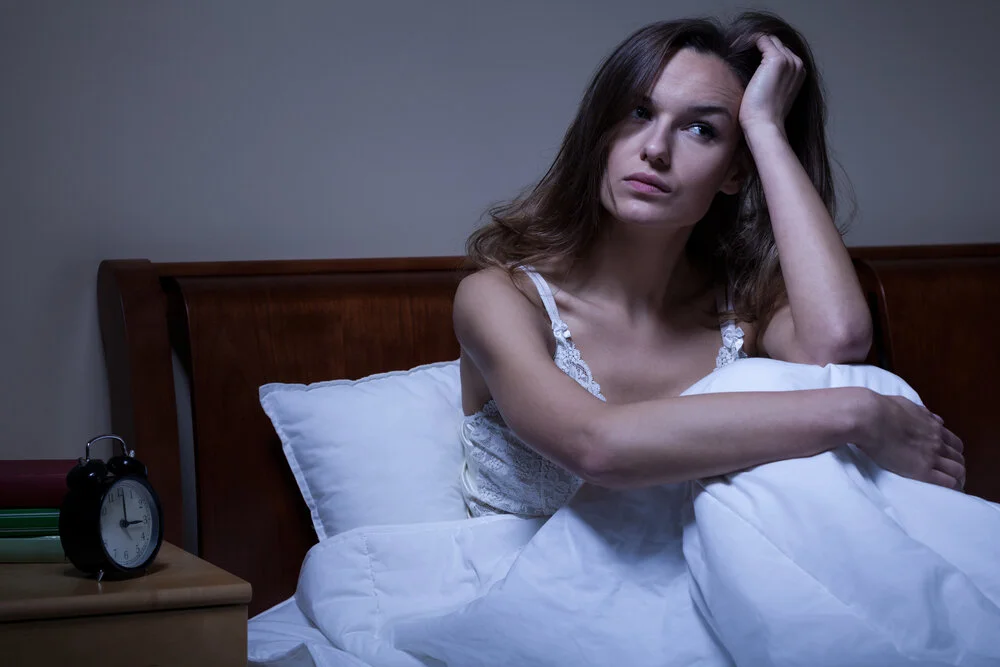The Natural Remedies for Better Sleep
We've all seen the wacky image of the individual who can't sleep and resorts to counting sheep. Insomnia is no funny issue when you're the one who's been tossing and turning all night.
According to a survey, one out of every four Americans suffers from minor sleeplessness. That inability to fall and stay asleep could be the result of a short-term problem or a lifetime of bad sleeping habits. In any case, sleep remedies can help.
Why Does Insomnia Occur?
Insomnia can be a short-term or long-term problem. However, no matter how long you have to deal with it, it is never enjoyable.
Most of us will suffer from a brief spell of sleeplessness at some point in our lives. Stress, a change in habit (like as starting a new job or having a baby), or medications that disrupt sleep, such as antidepressants, allergy and blood pressure medications and corticosteroids, are all common causes. The good news is that your sleep pattern will usually return to normal once you figure out how to deal with the circumstance.
In other cases, though, insomnia can develop into a long-term problem. This can occur as a symptom of a more serious health problem, such as sadness, anxiety, or sleep apnea. In certain cases, insomnia is caused by poor sleep habits, e.g. eating heavy before bed, an uncomfortable location for sleeping, or staying up all night staring at your smartphone or tablet.
In either case, not getting enough sleep leaves you exhausted, irritated, and unable to function during the day. It can also put you at risk for health problems such as obesity, high blood pressure, heart disease, and diabetes over time.
However, no matter how long your insomnia lasts, there is typically a solution to address the source of the issue and begin sleeping better. And, thankfully, there are numerous options to explore.
Why You Should Avoid Sleeping Pills
Sleeping pills and other sleep-promoting medications can provide a temporary fix for a case of insomnia. And a lot of individuals make advantage of them. Prescription sleep aids, on the other hand, are sometimes associated with distasteful side effects e.g. sore muscles, dry mouth, headaches, constipation, daytime weariness, concentration issue, dizziness and other. When you add them all up, they're about as awful — if not worse — than regular sleep deprivation.
Even if you're one of the fortunate few who don't encounter any negative effects from sleeping medications, you won't be able to enjoy the benefits for long. Most people soon develop a tolerance to sleeping pills' tranquil effects. This means you'll have to take increasingly higher doses to achieve the same impact, or they'll stop working entirely.
Making Exercise a Priority
If you didn't get the memo, staying physically active is critical to getting a good night's sleep. Evidence is mounting suggesting those who exercise regularly sleep better than their couch potato colleagues, especially those who suffer from severe insomnia.
Are you still not convinced? Think about it. According to one study, those who exercise for 60 minutes five days a week have more proper REM sleep than non-exercisers. However, you may not need to work out for as long to gain the benefits. Other research shows that insomniacs who exercise for thirty minutes three or four times a week sleep nearly an hour longer and wake up less frequently during the night than inactive people.
Sunlight as a Source of Healthy Melatonin Production
The sun may keep you awake in the morning, but it is also necessary for getting a good night's sleep. That's because your body uses natural light to determine what time it is and whether to produce energetic hormones or those that make you feel drowsy and calm, such as melatonin.
Taking Action to Reduce Stress
Stress may be robbing you of your ability to fall asleep if you find yourself lying in bed with your mind racing on a regular basis. In fact, about 40% of Americans claim they are frequently tired or fatigued as a result of stress.
Consider Seeing Your Physician
If you've tried every natural solution and is still having trouble sleeping, it's a good idea to speak with your doctor about your insomnia. You can talk about your symptoms together, which could indicate underlying health conditions that are making it difficult for you to fall asleep. She can also look over any prescriptions you're on to determine if they're interfering with your ability to sleep. For more sleep remedies see us at TMJ and Sleep Therapy Center of Oklahoma.
**Disclaimer: The information on this page is not intended to be a doctor's advice, nor does it create any form of patient-doctor relationship.

